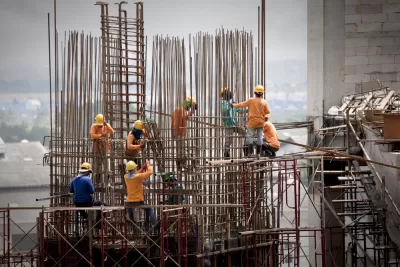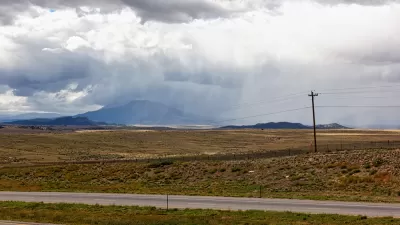A study from economist David Autor finds that the higher wages once offered workers without college degrees or special skills are mostly gone. Workers in cities often earn what they would in rural areas.

City boosters have long touted dense urban cities as places of opportunity. A new study finds that for low-skilled workers that may no longer be the case. An analysis of wages through time shows that, for less educated workers, the gap between pay in rural and urban areas has shrunk dramatically. "Because of this, cities no longer offer low-skilled workers the economic advantages they once did, according to new analysis by the M.I.T. economist David Autor," Emily Badger and Quoctrung Bui report for the New York Times.
Many policy makers and economists have mused that if Americans moved more they would be able to improve their incomes and have access to more opportunities. This study suggests that for many, that’s not the case, in part because of the decrease in manufacturing, the urban wage advantage is now only available for the professional class of Americans.
"Now, the urban jobs available to people with no college education — as servers, cleaners, security guards, home health aides — are basically the same kind as those available in smaller towns and rural communities," Badger and Bui write. Meanwhile, the cost of living in these denser communities are often much more expensive.
FULL STORY: What if Cities Are No Longer the Land of Opportunity for Low-Skilled Workers?

Alabama: Trump Terminates Settlements for Black Communities Harmed By Raw Sewage
Trump deemed the landmark civil rights agreement “illegal DEI and environmental justice policy.”

Planetizen Federal Action Tracker
A weekly monitor of how Trump’s orders and actions are impacting planners and planning in America.

How Atlanta Built 7,000 Housing Units in 3 Years
The city’s comprehensive, neighborhood-focused housing strategy focuses on identifying properties and land that can be repurposed for housing and encouraging development in underserved neighborhoods.

In Both Crashes and Crime, Public Transportation is Far Safer than Driving
Contrary to popular assumptions, public transportation has far lower crash and crime rates than automobile travel. For safer communities, improve and encourage transit travel.

Report: Zoning Reforms Should Complement Nashville’s Ambitious Transit Plan
Without reform, restrictive zoning codes will limit the impact of the city’s planned transit expansion and could exclude some of the residents who depend on transit the most.

Judge Orders Release of Frozen IRA, IIJA Funding
The decision is a victory for environmental groups who charged that freezing funds for critical infrastructure and disaster response programs caused “real and irreparable harm” to communities.
Urban Design for Planners 1: Software Tools
This six-course series explores essential urban design concepts using open source software and equips planners with the tools they need to participate fully in the urban design process.
Planning for Universal Design
Learn the tools for implementing Universal Design in planning regulations.
Caltrans
Smith Gee Studio
Institute for Housing and Urban Development Studies (IHS)
City of Grandview
Harvard GSD Executive Education
Toledo-Lucas County Plan Commissions
Salt Lake City
NYU Wagner Graduate School of Public Service




























